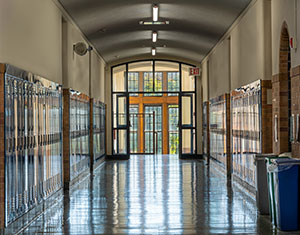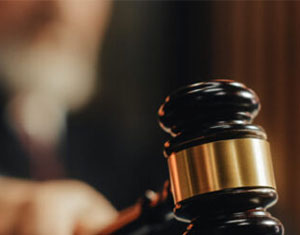An Experienced Injury Attorney for Victims of Inadequate Security at Schools and Colleges
If you or a loved one were seriously injured or died on a college campus or at a school building in Georgia due to the school’s lack of security measures, contact the negligent security attorneys at Apolinsky & Associates, LLC, to determine if you have cause to pursue legal damages and compensation for your injuries.
Table of Contents
- What Is Premises Liability on College Campuses in Georgia?
- Where Injuries Due to Negligent Security Occur on College Campuses in Georgia
- Proving Liability & Legal Causation in a College Campus Negligent Security Case
- Compensation and Damages Recoverable in a College Campus Negligent Security Case
- Types of College Campus Negligence Cases We Handle
- Further Reading on Spinal Cord Injuries
What is Premises Liability & Negligent Security on College Campuses & Schools in Georgia?
Many people believe that college campuses are “safe spaces” for everyone who lives or works there. But they’re no different than any other private property if a student, faculty, staff, or visitor is injured while on campus.
A public or private K-12 school, college, or university has a duty of care to ensure that their campus is safe for everyone who has a reason to be there. From students and faculty to staff and workers, a safe campus is a requirement under Georgia state statute O.C.G.A. §51-3-1. Invitees and guests should be protected against reasonably foreseeable risks with adequate security while on campus.
State and private universities can be held responsible for student injuries in certain situations. As invitees to college campuses, students are owed the highest duty of care under Georgia premises liability law, as spelled out in O.C.G.A. §51-3-1. That means schools have a responsibility to regularly inspect the campus for hazards and promptly address them.
Further Reading: Understanding Foreseeability in Negligence & Premises Liability
Where Injuries Due to Negligent Security Occur on College Campuses in Georgia
Because schools and college campuses have a duty to provide adequate security, if a student or visitor is injured due to unsafe conditions caused by the school’s negligence, you may have legal cause to sue in Georgia civil court.
Inadequate security can include things like poor lighting, broken locks or security systems in dorms, a lack of security patrolling campuses at night or in areas known to be dangerous, and a lack of security cameras. Determining whether the security that was in place was in fact inadequate will require careful review by an experienced injury lawyer.
Some common places where these injuries occur at K-12 schools, colleges, and universities include:
- Dormitories
- Athletic facilities
- Student recreation centers
- Libraries
- Dining halls
- Lecture halls
When these school campus areas are improperly maintained or have inadequate security, the school may be liable for your injuries.
Proving Liability and Causation in Georgia School & Campus Negligent Security Cases
Any civil personal injury case in Georgia requires a plaintiff to prove cause and proximate cause to win their case. College campus cases are no different in that regard. A plaintiff must show both cause in fact and proximate cause to win their claim.
- Cause in fact is the actual cause of a plaintiff’s injuries.
- Proximate cause is whether the defendant could have reasonably foreseen the danger that led to a plaintiff’s injuries.
These cases also involve a “but-for” test. That is, the plaintiff’s injuries would not have occurred “but for” the negligent security conditions on campus.
Waiver of Sovereign Immunity
Depending on the circumstances, state colleges may be able to successfully assert a defense of sovereign immunity. The good news is that O.C.G.A. 50-21-23 provides for a limited waiver of that immunity in tort actions. This is case-specific, and much of it may come down to the preparation and skill of your injury attorney.
Claims against state entities require notice prior to filing the suit. That can crunch the timeline of your claim. The purpose of this rule is to ensure the state has enough notice to possibly facilitate a settlement prior to litigation being filed. Notice claims also require the submission of some very specific information. Courts have held that strict compliance with this provision is required. If it is not met, the school can argue that sovereign immunity isn’t waived – and the case is lost.
Further Reading: Board of Regents of the University System of Georgia v. Myers & Non-Waiver of Sovereign Immunity
Compensation and Damages Recoverable in College & School Negligent Security Cases
If you or a loved one suffered injury at a school building or on a college campus in Georgia, we can help you recover financial compensation such as:
- Medical expenses, current and future.
- Lost wages, including future lost wages, or time missed in class.
- Property damage, such as a car or other personal property.
- Pain and suffering.
- Mental and emotional anguish.
- A decrease in quality of life.
Most K-12 school districts, colleges, and universities have insurance to cover these types of expenses and may want to settle your case to avoid any negative publicity. Speak with an attorney before agreeing to any settlements to understand your options.
Further Reading: Common Examples of Negligent Security That Lead to Injury


















